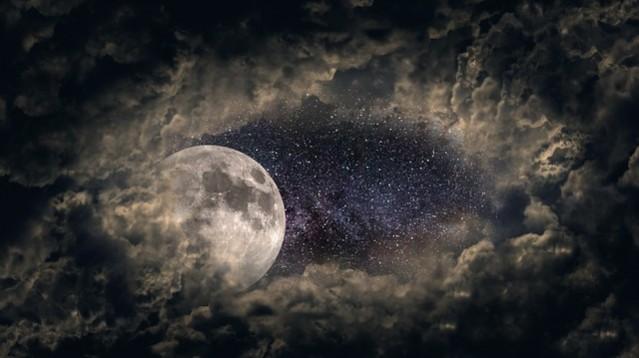
With all the lined up moon missions and the future plans of colonizing our one and only natural satellite; one question that keeps coming back is that – how will the lunar land be divided among the conquering nations? Well, that is something that will be determined under space law.
Recently, a space lawyer explained the most common question that he comes across – "who owns the moon?"
According to Frans von der Dunk, the director of the International Institute of Space Law, the United States is aware of the fact that seeing an American flag on the lunar surface will raise some major political issues across the world.
If the world even assumes that the moon is going to become a part of the US territory legally might fuel several concerns. It may even give birth to international disputes, which will be extremely harmful to the American space program as well as the nation's interests in general.
Frans von der Dunk also holds the Harvey and Susan Perlman Alumni / Othmer Chair of Space Law at the University of Nebraska-Lincoln's LL.M. Programme on Space, Cyber and Telecommunication Law.
So, did Neil Armstrong and Buzz Aldrin transform the moon or did their venture, at least, made a large area of the moon a part of the US territory? No. Neither the astronauts themselves nor the American space agency NASA or the US government wanted the US flag on the moon to create that effect, stated von der Dunk.
The answer was actually etched two years before the first manned mission to the moon. In 1967 Outer Space Treaty, both the superpowers, United States and the Soviet Union, along with other nations with a space program, had agreed that since "colonization" on Earth had caused extreme human suffering and several wars throughout centuries, the same mistake will not be repeated in case of the moon.
So, the moon had actually become legally "global commons," which means all the nations will be able to equally access the lunar land.
So, essentially, the American flag on the moon was not to claim the sovereignty, however, it was placed there to actually honour the US taxpayers and also the engineers, who made it all happen. Armstrong and Aldrin had carried a plaque that said that they "came in peace for all mankind," and as Armstrong said it was a "giant leap for mankind" not only for the US.
According to the space lawyer, the US and NASA kept their word and shared the samples and moon rocks that the astronauts had collected from the moon with all the other nations. Even during the Cold War, U.S. had shared this information with the Soviet Union.
So, then space law is not needed anymore; right? Not that easy actually.
Although the moon's legal status is that of "global commons," the 1967 Outer Space Treaty actually left many issues unsolved. Humans have also not been to the moon since the last manned moon mission in 1972, which made the lunar land rights hugely theoretical. However, that changed a few years back, when several nations came up with new plans to land on the moon.
Currently, at the least two American firms, named Planetary Resources and Deep Space Industries, are now targeting asteroids to mine their mineral resources. Point to be noted: Under the Outer Space Treaty, no one state can own any celestial body, including moon and asteroids, legally.
So, basically, the Outer Space Treaty failed to solve the issue of "commercial exploitation of natural resources on the moon and other celestial bodies," Frans von der Dunk wrote in The Conversation. This is being hugely debated across the international community and no solution has been found as of yet.
There are two possible outcomes.
- The countries with prominent space programs can agree to honour the treaty and acknowledge moon as global commons. So, all the nations, which are properly licensed and comply with the space law, can access the moon.
- Several nations, such as Russia, Brazil, and Belgium believe that the moon and the asteroids belong to the entire humanity. Therefore, the commercial exploitation's benefits should come to the entire mankind or, at least, should assure "humanity-wide benefits."
Whatever the solution is, the legal battle over the land of the moon is nowhere near to being over, believes the space lawyer. Although this is not the same as the old European colonization; it may still have the similar atrocious effects on Earth.

















